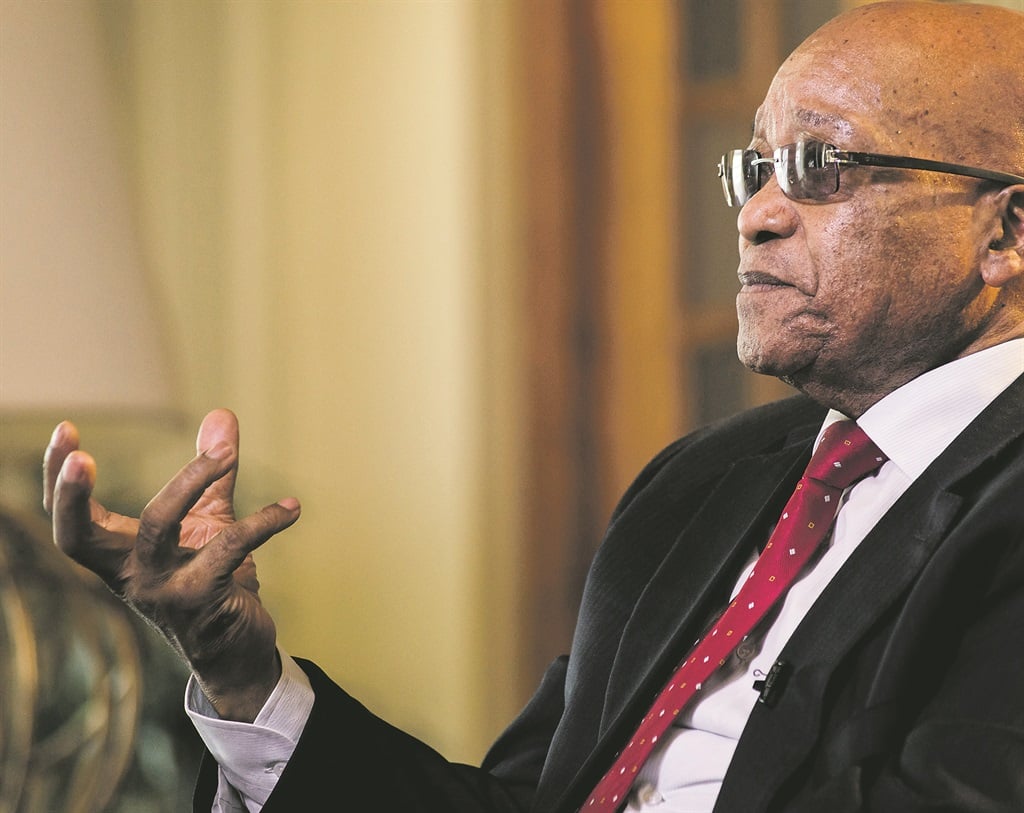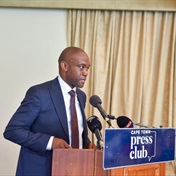
When Mineral Resources Minister Mosebenzi Zwane announced one Thursday evening in September that Cabinet had decided to institute a judicial inquiry into South Africa’s top four banks, he shocked not only the markets but his own colleagues as well.
Cabinet had indeed met on Wednesday, August 31 under the chairmanship of Deputy President Cyril Ramaphosa.
Many issues had been discussed and decided upon, but none of the people who had been present at this meeting could recall that particular item.
Phone calls were exchanged as ministers tried to jog their memories, thinking perhaps the decision had been taken during a power nap or a dash to the bathroom.
All they could recall was Zwane trying to table the matter three months prior, before the long pre-election break.
Back then he had been shut down quickly by his colleagues, who regarded the proposal as preposterous and dangerous. No serious discussion even took place about it and everyone thought it was dead and buried.
Now here he was, announcing it as a fait accompli.
What was also odd was that the announcement came from Zwane directly, instead of via the usual Cabinet briefings given by Minister in the Presidency Jeff Radebe.
Of course, there was nothing to remember. Zwane had made the whole thing up.
It was decided that, rather than Ramaphosa calling him to order, the rebuke should come directly from President Jacob Zuma.
At the time, the president was attending a Brics (the collective of emerging national economies of Brazil, Russia, India, China and South Africa) summit in China.
It was unprecedented for a minister to manufacture a Cabinet decision and make it public, so this was really serious.
According to government insiders, Zuma had been as shocked as everyone else upon hearing the Zwane announcement.
The rebuke was given by Zuma, who promised to deal with Zwane as soon as he returned from China.
That was two months ago, and Zwane is still going about his merry ways.
To those with intimate knowledge of Zuma’s relationship with the Gupta family, Zwane’s behaviour was not crazy at all. And Zuma’s shock was not feigned. He genuinely did not know.
What the chapter indicated was a scary fact:
The Guptas’ control was so extensive that they no longer needed to go via the president to get to the ministers they had helped appoint, and therefore owned.
After Zwane had failed to get the decision officially adopted, they had decided to gamble on him making it public in the hope that Cabinet colleagues would not contradict him.
The president would then back him up and make the inquiry official upon his return – after liaising with Saxonwold, of course.
The Guptas were the government, after all, and the real Union Buildings was their compound in Saxonwold.
As former public protector Thuli Madonsela’s State of Capture report has shown, Zuma is president in name only. Many ministers, officials and parasitical executives serve at the pleasure of the Guptas – so much so, there is an inside joke among ministers. It goes along these lines: if you look around the Cabinet boardroom table, you are not fully sure who, or how many among you, was appointed by the family.
But now panic is setting in as the Guptas realise that their power – which is directly linked to Zuma’s control of the ANC and his ability to politically rubber-stamp their decisions – is slipping through their fingers.
With the disappearance of this power, so their ability to print money at will vanishes.
By this time next year, it is highly likely that the Saxonwold compound will be a pass-through property for the Gupta family during visits from their mansions abroad.
Their businesses will be in the hands of front companies, run by the complex web of proxies that they have cultivated and made rich.
Depending on the appetite of whoever is in charge of the police and the National Prosecuting Authority (NPA) at the time, some of these proxies – including some household names – will be spending many hours in lawyers’ offices consulting on how to stay out of jail.
As for the fortunes of Gupta-owned politicians – at national and provincial levels – these will be hanging in the balance as the ANC prepares for its national elective conference, to be held next December.
By then, their having been the property of the Guptas will be recorded with a red “X” against their names, and those compiling election slates will be shunning Guptarites.
So, what becomes of Zuma?
If ever he had an annus horribilis, 2016 has been it.
The year 2005 was also an eventful one for Zuma. This was when he was relieved of his deputy presidency post by then president Thabo Mbeki and when he was charged with rape.
However, Zuma was riding high on a wave of political popularity at the time. He could still look forward to a political future.
In contrast, 2016 has been marked by a series of devastating blows, culminating in the voltaic events of this week.
Zuma may have survived the fallout from the damning Constitutional Court judgment, the disastrous August election results, his cloddish handling of the university crisis and open revolt from party structures.
But all these setbacks have the cumulative effect of rendering him impotent – in the figurative sense, in case he gets worried.
Heading into this week, it was clear that Zuma was at sixes and sevens.
The parliamentary caucus was no longer a bastion of support for him and was tilting towards his internal party critics.
Senior members of his party, including secretary-general Gwede Mantashe, had spoken out against his goons’ bid to bludgeon Finance Minister Pravin Gordhan as part of the Guptarisation project.
What must have sent a chill down his spine was the vote of no confidence in him by more than 100 ANC stalwarts.
The names on that list read like a roll-call of a Vatican conclave.
A mere mention of the names Andrew Mlangeni, Ahmed Kathrada, Gertrude Shope and Joyce Seroke in ANC environs gets party members standing to attention, even if symbolically.
Any ANC member worth their salt would have sat up to listen to the stalwarts’ message.
Zuma also had to witness his nemesis Mbeki adopt a statesmanlike stance in pleading with him to listen to the elders.
It was not lost on an admiring public that Mbeki let go of power much more easily, after spurious accusations by a Zuma-inspired mob lynching.
On Monday, Zuma had to contend with the collapse of the Gordhan case and the very real possibility that NPA head Shaun Abrahams could soon be spending his days sitting on park benches, like Nomgcobo Jiba and Lawrence Mrwebi.
His failure to halt the release of the state capture report and instead, to see it lay bare the details of his servitude to the Guptas was another blow.
Zuma now has two options: fight to the bitter end or negotiate a safe exit.
If he negotiates an exit, he will be admitting to the wrongdoing for which he has been accused.
He will also be admitting to his gross failure as head of party and state.
There is also the risk that letting go of the levers of power will open him to myriad criminal charges, from those laid against him before he became head of state to more serious ones concerning activities during his presidency.
Letting go will also be seen as a betrayal by the dodgy forces in politics, business and foreign government which have benefited, and still stand to benefit, from his corruptible tenure.
They will certainly hold a gun to his head to prevent him from leaving the Union Buildings.
If he chooses to fight, he risks an ignominious exit.
Already there are strong sentiments in society that his exit should not be pleasant, and that his life after departure should not be spent admiring his livestock in Nkandla, but rather, eating weak soup and bathing in communal showers.
Either way, the end is nigh.




 Publications
Publications
 Partners
Partners























